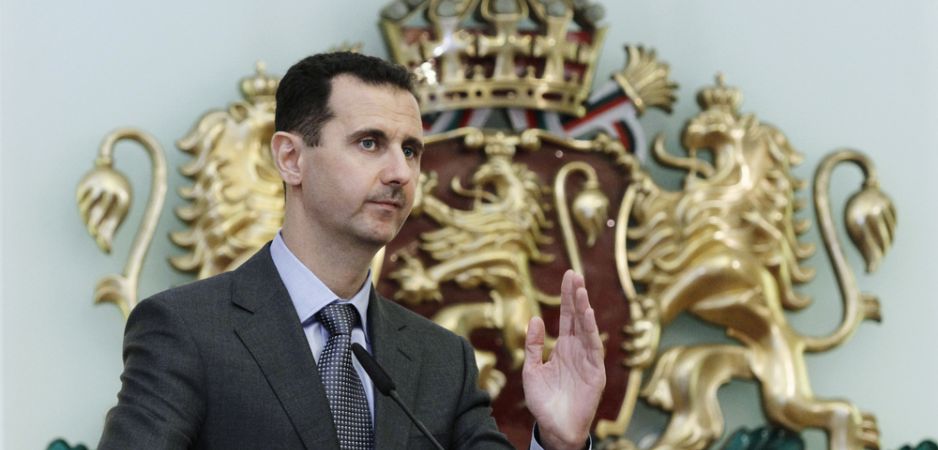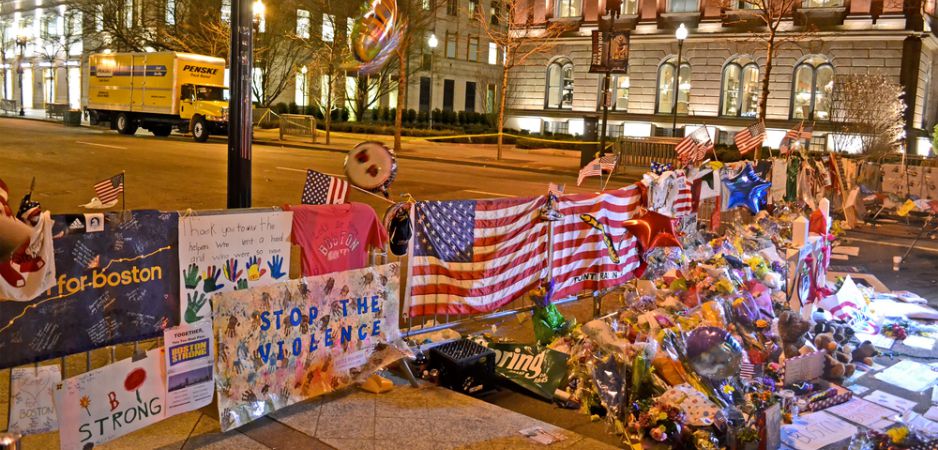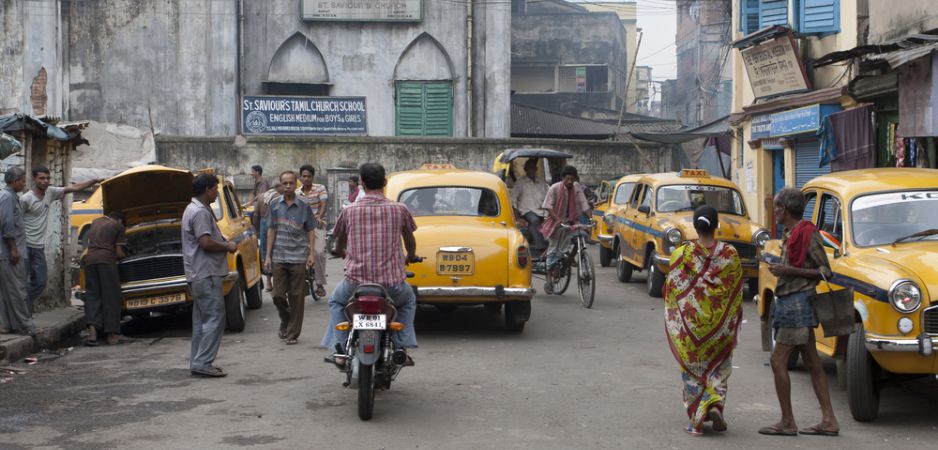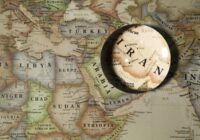As Sykes and Picot toss and turn in their graves, the Middle East is going through its own version of the Thirty Years’ War.
In 1916, Sir Mark Sykes and Monsieur François Georges-Picot got together to divide the carcass of the rotting Ottoman Empire. Post-Versailles, the British and the French would carve up the Middle East into arbitrary nation states with ridiculous borders. The light-touch administration of the Ottomans, where local notables largely ran cities and tribes were autonomous in their territories, was replaced by the Franco-British model of a centralized state.
In new states, concentration of power occurred. Now, capitals lorded over other cities. During the rule of the Ottomans, Aleppo was the third largest city of the empire after Istanbul and Cairo. In the new state of Syria, Damascus destroyed Aleppo. Capitals in all states assumed disproportionate importance. From here rulers would dispense patronage and exercise control.
The new rulers of these centralized entities were far more brutal and ruthless than the Ottomans. Dictators like Saddam Hussein and Hafez al-Assad censored, jailed and tortured anyone they wanted. They were paranoiac and tended to trust their clansmen above others. They claimed to represent the entire nation. They spouted fealty to ideals such as equality and socialism. In reality, they were just new rulers with a European centralized bureaucracy controlling a diverse and divided land.
In the aftermath of the Arab Uprisings, the world created by Sykes and Picot has emulated Humpty Dumpty and fallen off the wall. All planes, drones, missiles and men will not be able to recreate that world again. As if to underline that fact, the Islamic State (IS) has taken over Palmyra in Syria, Ramadi in Iraq and al-Tanf, the last Syria-Iraq border crossing controlled by the Syrian government.
As per the Syrian Observatory for Human Rights, IS controls “more than 95,000 square kilometers” (36,679 square miles) of Syria, about 50% of the country’s entire territory. It also controls much of Anbar province. Ramadi is the capital of Anbar and merely 105 kilometers west of Baghdad. Unsurprisingly, the Iraqi government is spooked. It has summoned Shiite militia to fight the Sunni IS. As Managing Editor, author and journalist Abul-Hasanat Siddique remarks, this is “fighting fire with fire.”
Shiite militias are no angels. As Fair Observer reporter Landon Shroder points out, these militias “have a documented history of killing, displacing and abducting civilians.” Even if they were to recapture Ramadi, what happens thereafter is the fundamental question. For years, Saddam Hussein’s Sunni kinsmen wreaked havoc on Shiites and the Kurds. Murder, torture and even chemical weapons were fair game. Once the Baathist regime fell, Iraq’s Shiite-dominated government has been less than forgiving of the past.
In fact, many analysts argue that a key reason for the rise of IS in Iraqi territory has been the resentment Sunnis feel toward what they see as a Shiite regime in Baghdad. Qasem Soleimani, the renowned commander of Iran’s Quds Force, helped Iraqi troops recapture Tikrit from the Islamic State. His presence did not go down well in Saddam hometown. Lest we forget, Saddam started the eight-year Iran-Iraq war, and animosities toward Iraq’s eastern neighbor run deep in Sunni territory.
The rise of the Islamic State has made the US and the countries in the region behave like cats on a hot tin roof. The US is caught in a bind. It wants to crush IS but is war weary and unwilling to put troops on the ground. Other Sunni countries bemoan the rise of IS and fear its fanaticism, but they do not want to upset their Sunni populations and certainly do not want Iranian-led Shiites to control more territory. Hence, the outrage against IS, whilst real, does not trigger military operations or even serious airstrikes by the likes of Turkey, Egypt or Saudi Arabia, three of the biggest powers in the region.
The Thirty Years’ War in Germany began as a civil war between Protestants and Catholics and degenerated into a protracted conflict with outside powers such as France and Sweden intervening. The civil war in Syria and Iraq has fused together to become a messy regional conflict with multiple parties and shifting agendas. The conflict will last for years to come and a new order will only emerge when all sides have fought each other to a standstill. In the meantime, invaluable treasures such as the world heritage site of Palmyra will disappear, thousands will die and millions will be displaced.
Even as battle rages in the Middle East, China has embarked on a charm offensive. This comes at a time when a US plane with CNN crew on board flew over the disputed man-made islands that China is building in the South China Sea. Chinese Prime Minister Li Keqiang embarked on an extended tour of Latin America, a place the US has long held to be its backyard and where it once imposed the Monroe Doctrine.
Latin American economies are now deeply reliant on China. Their biggest trading partner is no longer Uncle Sam but the Middle Kingdom. The growth of trade between China and Latin America has been spectacular. As per the US government, it grew from $10 to $130 billion between 2000-09, a rise of 1,200%. It continues to grow as a more prosperous China hungers for more soybeans, sugar, beef, copper, iron, timber and more. This means that millions of jobs in Latin America now depend on Chinese demand. It is little wonder that Li is getting a rousing reception in the region.
Li has signed significant trade and investment deals on this trip. Whether it is wood products in Chile, copper in Peru or beef in Brazil, exports to China will increase. Similarly, imports and investment from China will increase too. Over time, China’s influence in the region will grow. Even Colombia, a staunch US ally, is cozying up. Li’s pledge of $8 billion for post-conflict reconstruction is far too alluring.
Not too long ago, Paul Kennedy, a British historian who trained at Oxford and teaches at Yale, came up with the idea of “imperial overstretch.” He posited that a dominant power starts expanding strategic commitments. This leads to increasing military expenditures that eventually overburden that power’s economic base. This in turn causes long-term decline. Kennedy made the claim that both the Soviet Union and the US were suffering from imperial overstretch. The Soviet Union is now dead. The US is dealing with the Islamic State at the same time as flying planes to scare the Chinese even as its debts keep growing. Meanwhile, the Giant Dragon is seducing Latin Americans whom Uncle Sam had long regarded as inviolable members of its harem.
Finally, this has been a week when American and British authorities fined the five largest banks in the world a record $5.7 billion. Four banks — JPMorgan, Barclays, Citigroup and RBS — pleaded guilty to criminal charges. They were all accused of manipulating the foreign exchange market. Yet this settlement closes the door on transgressions by banks. What is interesting is that the group of 20 traders who committed the crime called themselves the “cartel” and sent messages such as “If you ain’t cheating, you ain’t trying.” Yet none of them is going to jail.
Senator Elizabeth Warren, the darling of many Democrats, points out that over 1,000 people were prosecuted after the savings-and-loan crisis of the early 1990s and more than 800 were convicted. After the much bigger financial crisis of 2007-08, no senior banker has been convicted. The new fashion is murky settlements in which financial institutions pay big fines and prosecutors drop charges. This is both inefficient and wrong.
As The Economist points out, “negotiated settlements are no substitute for criminal proceedings.” They are inefficient because neither crimes, nor fines are scrutinized in a court of law. No precedents are established to deter future crimes. They are wrong because they are unjust. For the law not to be as ass, it has to be followed by all. This means that those who break it should be tried, convicted and punished regardless of their wealth or power. The US has no hesitation in criminalizing poverty and packing off poor black men to jail if they fail to pay a fine. Yet it is unwilling to hold wealthy white men to the same standards. Justice no longer seems to have a home in the land of the free.
*[You can receive “The World This Week” directly in your inbox by subscribing to our mailing list. Simply visit Fair Observer and enter your email address in the space provided. Meanwhile, please find below five of our finest articles for the week.]
[seperator style=”style1″]The Foreign Policy Bazaar With Ian McCredie[/seperator]
In this edition of The Interview, Fair Observer talks to Ian McCredie, a former senior British foreign service official.
Any conversation with Ian McCredie reveals that he has been at the epicenter of world events, many of which continue to captivate our collective imagination. Whether it was developing sources in Zambia at the height of the Cold War, acting as a Swedish diplomat in Iran after the Islamic Revolution or working to undermine the Soviet Union in various places, McCredie was there.
This makes speaking to him something a revelatory experience, reducing you to the role of an enthusiastic student, eager to understand the intersection of secret diplomacy and foreign policy — exposing a world that, for most, only exists in books and films.
As one of the most senior British officials in Washington DC on September 11, 2001 — and, later, as the UK/US intelligence coordinator for the invasion of Iraq in 2003 —McCredie is privy to information… Read more
[seperator style=”style1″]India Must Focus on Education[/seperator]
Five years after the Right to Education Act, India needs clear goals to give its children the education they deserve.
March 31 marked the fifth anniversary of the Right to Education Act (RTE Act) in India. This legislation was passed to implement section 21A of the Indian Constitution, which promises free and compulsory education to all children between the ages of 6 to 14.
The anniversary of RTE Act was an occasion for a copious amount of commentary. Nearly all of it was filled with quantitative details such as the total amount of children out of school, the number of dropouts and the paucity of teachers, lack of buildings, toilets and drinking water. But few paid attention to qualitative aspects of the RTE Act.
India’s population is of continental dimensions. Its 1.25 billion people exceed the total population of Europe and North America. The divergences, differences and disparities among Indians are too well-known to bear repetition. In this complex population… Read more
[seperator style=”style1″]The Problem With Young Dictators[/seperator]
Bashar al-Assad is not going to age out of office any time soon.
The classic image of the dictator clinging to power, resisting the world’s entreaties to resign and fending off internal attempts at ouster is that of an old man, stubborn and long past caring what others think. He’s been on the throne for so long that his name has become synonymous with the state — l’état c’est moi! — and his very longevity has become a stinging rebuke to his opponents.
The rogues’ gallery of elderly dictators, while ideologically diverse, is united by two things: sheer cussedness and extreme avarice.
Robert Mugabe, the current president of Zimbabwe, is 91 years old. Before they were toppled in the Arab Spring uprisings, the trio of Hosni Mubarak of Egypt (83 at the time), Zine el-Abidine Ben Ali of Tunisia (74 at the time) and Muammar Gaddafi of Libya (69 at the time) were all past retirement age. In Uzbekistan, Islam Karimov is 77 years old… Read more
[seperator style=”style1″]Youth Must Be Prevented From Joining Terrorist Groups[/seperator]
In this edition of The Interview, Fair Observer talks to psychologist and trauma responder Alice LoCicero.
Shortly after brothers Dzhokhar and Tamerlan Tsarnaev were revealed as suspects in the Boston Marathon bombing in 2013, Alice LoCicero learned that they had lived in her community and attended the same high school as her children.
A long-time psychologist, professor and trauma responder, her research has focused on children being recruited into lives immersed in violence. Due to her local connections and professional background, LoCicero had a keen interest in Dzhokhar Tsarnaev’s recent trial. Tsarnaev was found guilty on all 30 counts against him, and he was sentenced on May 15 to receive the death penalty.
In her most recent book, Why “Good Kids” Turn Into Deadly Terrorists: Deconstructing the Accused Boston Marathon Bombers and Others Like Them, LoCicero argues that the exploitation, by opportunistic zealots, of children and young adults can be stopped, and she explains that communities have the power to work… Read more
[seperator style=”style1″]Cutting the Flab From Delhi’s Polluted Air[/seperator]
It is time for cities like Delhi to cut their pollution so that India can become a cleaner country.
Cutting air pollution is akin to losing weight. Everyone wants it, many make New Year resolutions, but few do anything about it.
In India, Delhi’s new government could take a leaf out of exercise routines to cut the flab in the city’s polluted air. Here is a four-step formula.
An optimal exercise regime requires a detailed understanding of the human body’s complex physiology. Holistic exercise prescriptions have to target the entire body, not just specific parts. Similarly, an optimal “dose” of policy intervention requires a holistic understanding of pollution mechanisms.
Air quality is an outcome of a complex interaction between sources of emissions — transport, industry, power and waste — and meteorological factors. Any remediation, therefore, requires a coordinated policy effort across all these sectors. In the recent past, pollution-related policies have been focused primarily… Read more
The views expressed in this article are the author’s own and do not necessarily reflect Fair Observer’s editorial policy.
Photo Credit: Orlok / Shutterstock.com
 We bring you perspectives from around the world. Help us to inform and educate. Your donation is tax-deductible. Join over 400 people to become a donor or you could choose to be a sponsor.
We bring you perspectives from around the world. Help us to inform and educate. Your donation is tax-deductible. Join over 400 people to become a donor or you could choose to be a sponsor.
1 comment
Leave a comment
You must be logged in to post a comment.
Support Fair Observer
We rely on your support for our independence, diversity and quality.
For more than 10 years, Fair Observer has been free, fair and independent. No billionaire owns us, no advertisers control us. We are a reader-supported nonprofit. Unlike many other publications, we keep our content free for readers regardless of where they live or whether they can afford to pay. We have no paywalls and no ads.
In the post-truth era of fake news, echo chambers and filter bubbles, we publish a plurality of perspectives from around the world. Anyone can publish with us, but everyone goes through a rigorous editorial process. So, you get fact-checked, well-reasoned content instead of noise.
We publish 2,500+ voices from 90+ countries. We also conduct education and training programs
on subjects ranging from digital media and journalism to writing and critical thinking. This
doesn’t come cheap. Servers, editors, trainers and web developers cost
money.
Please consider supporting us on a regular basis as a recurring donor or a
sustaining member.
Will you support FO’s journalism?
We rely on your support for our independence, diversity and quality.












Matthew Evans
May 27, 2015
I am surprised at your implication that all was sweetness and light under the Ottoman Empire until the French and British arbitrarily carved up its borders. The one million plus Armenians who died in the Ottoman Empire's genocide attempt would, I suspect, beg to differ. Far from a system of enlightened devolution of power, The Ottoman Empire had a weak and corrupt centre which allowed provincial elites to assert themselves in a quasi-autonomous fashion.